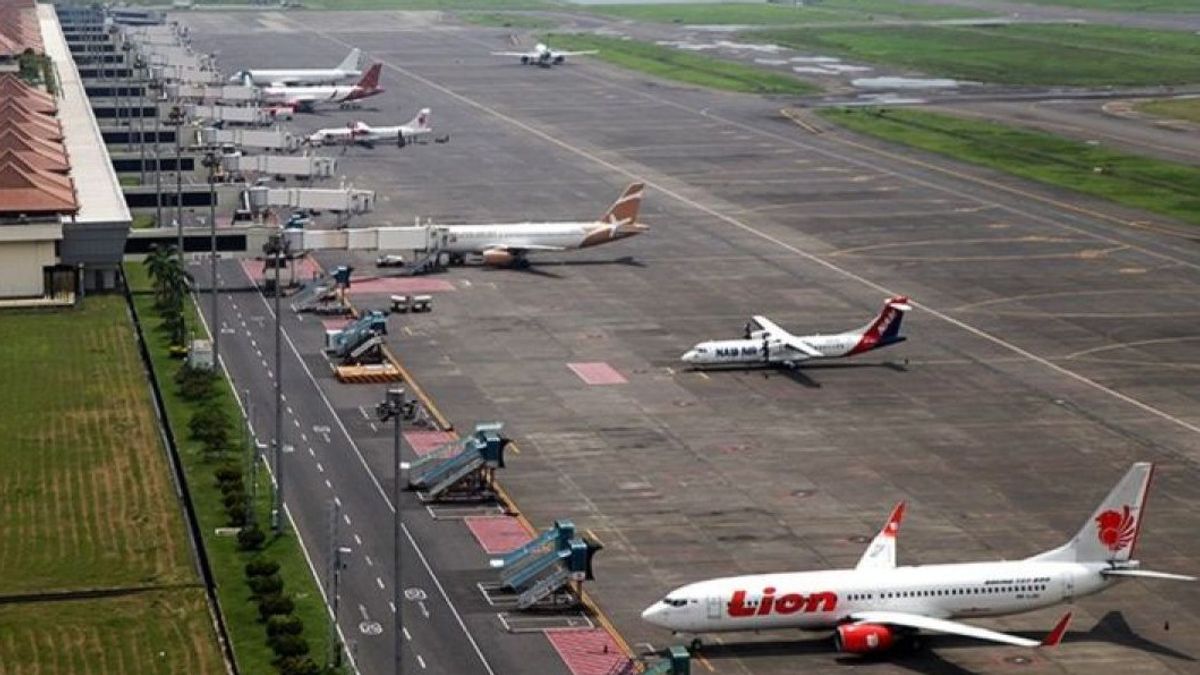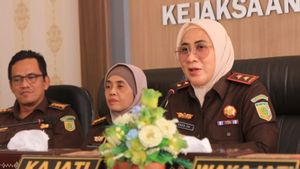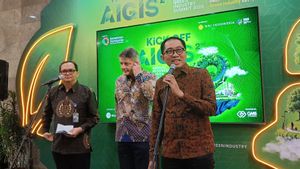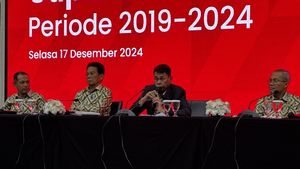JAKARTA - Spokesperson for the Ministry of Transportation Adita Irawati stated that the number of aircraft fleets in Indonesia began to show recovery after experiencing a drastic decline due to the COVID-19 pandemic.
Adita in a Public Evaluation of the Performance of the Public Transportation and Transportation Sector of the Jokowi Government which was carried out online in Jakarta Wednesday, October 3, said that the pandemic had had a significant impact on the aviation industry in Indonesia, including the number of operating fleets.
"Itu memang jumlah fleet menurun drastis, sempat jatuh, (armada) hanya di sekitar 40 persen dibandingkan sebelum pandemi COVID-19, tetapi sekarang sudah mulai agak pulih meskipun belum mencapai titik drawnya seperti sebelum pandemi," kata Adita, dilansir Antara.
He revealed that before the pandemic, the number of aircraft fleets in Indonesia reached around 800 units. However, during the pandemic, this number decreased drastically to reach 60 percent.
The Ministry of Transportation noted that the number of aircraft fleets is currently in the range of 450 to 500 units. Although it is still far from the ideal number before the pandemic, this recovery provides hope for the aviation industry to bounce back.
"When it comes to the number of aircraft, this is indeed a big issue in Indonesia because the supply of aircraft has decreased dramatically after the pandemic, this is because the global situation has not yet recovered and this is happening almost all over the world and not only in Indonesia," explained Adita.
According to him, the imbalance between supply and demand is still a major problem. Moreover, the number of available aircraft is still not enough to meet this surge in demand.
According to him, this caused an imbalance between supply and demand, which resulted in flight ticket prices.
"And this also causes the supply and demand to not be balanced, the very high demand can only be fulfilled by the existing aircraft," he said.
The Ministry of Transportation also highlighted the importance of the presence of more than 800 aircraft fleets to meet travel demand, especially in areas that have great potential, such as priority tourism areas.
Even so, Adita admitted that the Government had set an upper limit tariff corridor and a lower limit rate to maintain the stability of ticket prices, but airlines were allowed to set prices at the upper limit in accordance with market mechanisms.
Even so, said Adita, the Government continues to monitor ticket prices so that they remain in the established corridor.
BACA JUGA:
Moreover, in certain periods, such as the homecoming season or the Christmas and New Year holidays, the increase in demand for air travel is predicted to occur. The increase in ticket prices at these times is considered reasonable as long as it is still within predetermined limits.
However, the government remains alert to possible violations committed by airlines regarding ticket prices.
He emphasized that if there is a tariff violation that exceeds the predetermined limit, the government will impose sanctions in accordance with applicable regulations.
"As long as it is still in the corridor, the government certainly cannot take action against this, but we will continue to monitor if there is a violation, of course there will be sanctions that will be applied," said Adita.
The English, Chinese, Japanese, Arabic, and French versions are automatically generated by the AI. So there may still be inaccuracies in translating, please always see Indonesian as our main language. (system supported by DigitalSiber.id)
















